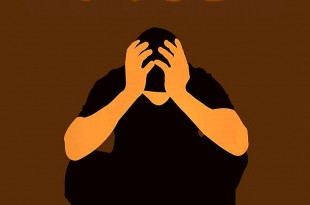Post-Traumatic Stress Disorder
Living through an actual or perceived life and death experience, or being surrounded by the realities of violence and death, can bring on Post-Traumatic Stress Disorder (PTSD). Severe wartime experiences, for example, not only elicit anxiety and stress, they may induce fearful feelings that include flashbacks, hallucinations, and panic attacks. Other post-traumatic conditions include rape or other sexual abuse, severe emotional abuse, and living through devastating natural events, such as an earthquake, tsunami, typhoon, or hurricane.
Fifty years ago, this condition was typically called "battle fatigue" or being "shell shocked" at the horrible realities of war and what was witnessed. Today, the diagnostic category of "post-traumatic stress disorder" fits better and is more inclusive, expanding the original definition to any event or situation that brought on these symptoms, not limited to war and the battlefield.
Symptoms
1. Reliving the event over and over, whether it be through nightmares, flashbacks, or anxiety attacks. A constant, repeated focus on the event elicits symptoms of stress and anxiety.
2. Avoidance of current life events.
a. The person exhibits a lack of interest in normal, daily activities.
b. Emotional "numbing" -- a symptom that is shared by all the anxiety disorders -- whereby the person feels detached from reality and emotion is blunted concerning it. Everything feels surreal and the person doesn't seem to care about present events and circumstances.
c. Unwilligness or inability to show emotions and mood.
d. Inability to remember and vocalize important parts of the traumatic situation.
e. Avoiding anything (even if remote) that reminds the person of the event.
f. The feeling that life is over; that no future exists.
Treatment
Many therapies have been tried over the years, but effective treatment has always led back to a variety of forms of cognitive-behavioral therapy. Being able to talk through the horrors of the event, with a trusted and understanding person is important. Treatment response has been slow relative to other anxiety disorders, and many people have been left feeling like they had no future. Medication has been tried more than anything else, with some drugs showing positive compatability with psychological therapy, almost always cognitive-behavioral therapy. People with PTSD do not respond well to argumentativeness, confrontation, or shouting matches. Equally not effective are therapies that have no chance of changing the brain itself. The brain must be changed (i.e., the neural circuitry that makes up the neural pathways) before healing can occur. That is why time and patience are both necessary to recover from this disorder.
The more effective forms of cognitive-behavioral therapy, as related to post-traumatic stress disorder, should be tried gently and repeatedly. The symptoms of PTSD can be changed when the person is working with an understanding and trusted therapist. Trust is important in this therapeutic relationship and should be protected. PTSD can be treated effectively, people can make significant progress, and people can recover from this traumatic stress disorder.
Additional Information
Additional information about Post-Traumatic Stress Disorder, can be found at the National Institutes for Mental Health
Please stick to legitimate sites as much disinformation exists on the web.
For people with post-traumatic stress disorder and their friends and loved ones: You should always remember that this condition is very strong and very real. This does not mean, however, that your loved one is stuck this way forever. Gentle, step-by-step, active approaches to recovery will work in most cases, given time and patience. When one symptom is being worked upon, please remember that as the person improves, the improvement may be global, i.e., it may bleed over into other areas of the person's life. It does not take "forever" for a person to recover. They may not forget what they witnessed, but they can learn to focus on other, more positive things. There is more than hope for people with post-traumatic stress. Recovery can and does occur. Please do not rely on medication alone as it has no power to change the brain permanently. Effective cognitive-behavioral approaches -- which with repetition literally change the brain -- work in the vast majority of cases.
Our History and Our Mission
The Anxiety Network began in 1995 due to growing demand from people around the world wanting help in understanding and overcoming their anxiety disorder. The Anxiety Clinic of Arizona and its website, The Anxiety Network, received so much traffic and requests for help that we found ourselves spending much of our time in international communication and outreach. Our in-person anxiety clinic has grown tremendously, and our principal internet tool, The Anxiety Network, has been re-written and re-designed with focus on the three major anxiety disorders: panic, social anxiety, and generalized anxiety disorder.
The Anxiety Network focuses on three of the major anxiety disorders: panic disorder, generalized anxiety disorder, and social anxiety disorder.
In 1997, The Social Anxiety Association, a non-profit organization, was formed and now has its own website.
The Social Anxiety Institute, the largest site on the internet for information and treatment of social anxiety, has maintained an active website since 1998. Continuous, ongoing therapy groups have helped hundreds of people overcome social anxiety since 1994.




